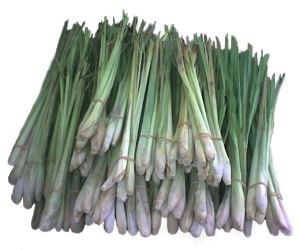 |
||
|
Home 10 DOH Herbs Adelfa Akapulko Ampalaya Balanoi Banaba Bayabas Bawang-Garlic Carrot | Karot Luyang Dilaw Gumamela Lagundi Mabolo Malunggay Makabuhay Niyog-Niyogan Oregano Pandan Pansit-pansitan Sabila Saluyot | Jute Sambong Silymarin Tanglad-Lemon Grass Tsaang Gubat Virgin Coconut Oil Yerba Buena |
Tanglad | Lemon Grass(Andropogon citratus DC) |
|
|
|
||
Health Benefits of Lemon Grass | TangladStudies show that tanglad helps ease stomach discomforts and aids in lessening, if not totally curing, the pain caused by toothache and sprain. Lemon grass also displays anti-bacterial activities and anti-fungal properties, thus, eradicates ring worms. Like malunggay, lemon grass can also be applied to sprains for easy healing. In order to enjoy these benefits of tanglad, one needs to prepare a liniment. This can be done by chopping four ounces of the leaves and roots of tanglad and boiling them, along with fresh coconut oil. If it is infusion that an individual wishes to achieve, use one pint of water to boil the tanglad leaves with. The lemon grass plant may also serve as an insect repellant, particularly of mosquitoes. One can achieve an effect to this end either by applying liniment, or by placing crushed tanglad leaves in strategic places at home including the window sills. It is also an option to plant tanglad around the house so that placement of crushed leaves would no longer be needed. Another health benefit which can be derived from tanglad, is the calming effect derived from its scent. Thus, lemon grass can aid an individual if such person is suffering from insomnia or stress. The plant also has therapeutic value, which allows it to be used by women who are suffering from menstrual problems or dysmenorrhoea, and from usual bouts of nausea. Tanglad also has cleansing properties, which makes it a good option to detoxify the various internal organs, like the liver. Lemon grass reduces the level of uric acid and of other toxins, as it detoxifies the body. This can result to better blood circulation and better digestion, as excess fats and cholesterol are cut down from the body. When taken in, tanglad affects the tissues in such a manner that there would be a significant reduction and avoidance of acne and pimples. Also, it tones the muscles and the tissues, and thus makes the skin firmer. Like saluyot, exposure of an individual to the benefits of tanglad is greatly increased because of the nature with which it can be used. As saluyot can be taken in as part of oneís usual viand and dish, tangladís properties on the other hand, allows it to be used as food flavorings. Lemon grass is incorporated in a multitude of Asian cuisines and dishes, and in the Philippines it is even made part of commercial beverages. So aside from the oil that can be extracted from lemon grass leaves, the fluid that is obtained from the boiled leaves of this plant proves to have medicinal purposes as well. Such lemon grass leaves can also be used in its raw form by mixing directly with the food before it is served. Such dishes include, and are especially good, when the primary ingredient is fish or poultry. Besides the health benefits, tanglad balances the chili flavorings in dishes, which makes eating a more enjoyable experience. |
||
|
|
||
Other Herbal & Non-Herbal Medicine: Philippine Plants, Fruits & TreesAbaca Plant | Avocado | Atis Fruit | Banana Plant | Barako Coffee | Coconut Palm Tree | Durian Fruit | Guyabano Fruit | Mango Tree | Mangosteen | Papaya Fruit | Pineapple Nutrition Facts | Rubber Tree | Tomato | Tuba-Tuba Plant - Jatropha Key to Nutritional Healing | Philippine Medicinal Plants List |
||
|
Philippine Herbal Medicine © 2005-2024 |
||
 Tanglad or lemon grass is a commercially-viable
plant that is cultivated mainly for the fragrance that it produces.
It can be easily found in most Asian countries, and is widely cultivated
in tropical areas. By nature, tanglad is a permanent or perennial
plant, and the benefits of which are not restricted to its fragrance.
The utility of tanglad basically lies in its leaves, where all the
benefits are derived. What can be seen of this plant are mainly its leaves,
which allows easy access to the main part that is needed in order to
enjoy tanglad's health benefits. It constitutes most of what appears of this
plant above ground, as the leaves grow up to one meter in length, and
are flat in shape.
Tanglad or lemon grass is a commercially-viable
plant that is cultivated mainly for the fragrance that it produces.
It can be easily found in most Asian countries, and is widely cultivated
in tropical areas. By nature, tanglad is a permanent or perennial
plant, and the benefits of which are not restricted to its fragrance.
The utility of tanglad basically lies in its leaves, where all the
benefits are derived. What can be seen of this plant are mainly its leaves,
which allows easy access to the main part that is needed in order to
enjoy tanglad's health benefits. It constitutes most of what appears of this
plant above ground, as the leaves grow up to one meter in length, and
are flat in shape.